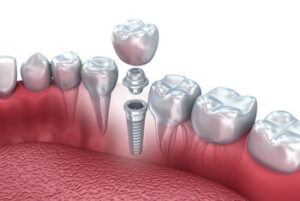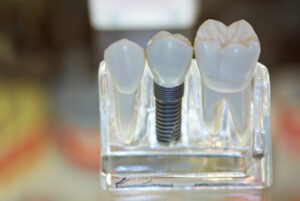When considering dental implant treatment, the choice of location plays a crucial role. Dental tourism is now gaining worldwide attention for getting a dental implant. Kuala Lumpur is one such destination that allows affordable dental treatments. While Kuala Lumpur in Malaysia is renowned for its dental services, particularly for dental implants, Australia emerges as a much better option for various reasons. This article will explore the benefits of opting for dental implant treatment in Australia over Kuala Lumpur.
Understanding Dental Implants
Dental implants have revolutionised the approach to treating missing teeth, offering a solution that closely mimics natural teeth. They serve a cosmetic function and are essential in maintaining dental health. This expanded section delves into the intricacies of dental implants, exploring how they work, their benefits, and what the procedure entails.
What is a Dental Implant?
A dental implant is a small, screw-like post, typically made of titanium, which substitutes for the root section of a missing tooth. Due to the biocompatible nature of titanium, these implants integrate well with the bone, forming a stable foundation for the replacement tooth. This process, known as osseointegration, is the cornerstone of the implant’s success.
Components of a Dental Implant

- The Implant: A cylindrical or tapered post placed into the jaw bone.
- The Abutment: A connector fixed on top of the implant to hold and support the crown.
- The Crown: A personalised artificial tooth, the crown is usually made of ceramic attached to the abutment.
The Dental Implant Process
The dental implant procedure is a multi-step process that often spans several months. It typically involves the following stages:
- Initial Assessment: Comprehensive examination and imaging to assess the feasibility of implant placement.
- Preparation: If necessary, pre-treatments such as bone grafts are conducted to ensure adequate bone structure.
- Implant Placement: Surgical insertion of the implant into the jawbone under local anaesthesia.
- Healing Period: A waiting period for osseointegration lasting several months.
- Abutment Placement: Once healing is complete, the abutment is attached to the implant.
- Crown Fitting: The final artificial tooth is custom-made and secured to the abutment.
The Role of Osseointegration
Osseointegration is a biological process in which the dental implant and bone bond. This integration is critical for the stability and longevity of the implant. Like natural teeth, it allows the implant to withstand biting and chewing forces.
Advantages of Dental Implants
Natural Look and Feel
Dental implants are curated to look, feel, and function like natural teeth. They retrieve the ability to eat and speak comfortably and improve overall aesthetics.
Longevity and Durability
When properly maintained, dental implants can stay durable for a lifetime. They are more durable than tooth-replacement options, such as bridges or dentures.
Jawbone Preservation
Dental implants assist in preserving the jawbone by stimulating bone growth, preventing bone loss that often occurs with missing teeth.
Improved Oral Health
Unlike dental bridges, implants do not require altering adjacent teeth. This preservation of natural teeth contributes to long-term oral health.
Enhanced Self-Esteem
Replacing missing teeth with dental implants can boost self-confidence, providing a complete, natural-looking smile.
The Surgical Procedure of Dental Implantation
Consultation and Planning
The journey begins with a detailed consultation at a dental implants clinic, where the dentist assesses the patient’s oral health, discusses expectations, and plans the treatment. Advanced imaging techniques, like CT scans, are employed for precise planning.
The Surgery
Implant operation is typically performed as an outpatient procedure under local anaesthesia. The dentist makes an incision in the gum to expose the bone and drills a hole to place the implant. Post-surgery, patients may experience minor discomfort, swelling, and bruising, which are normal and manageable with medications.
Recovery and Osseointegration
The recovery period is crucial for osseointegration. Patients are directed to follow a soft diet and maintain good oral hygiene. Regular follow-ups are essential to observe the healing process.
Final Restoration
Once osseointegration is complete, the abutment and artificial tooth are placed. The artificial tooth is curated to match the natural teeth’ colour, structure, and size, ensuring a seamless integration.
Post-Implant Care
Proper care extends the life of dental implants. Regular brushing, flossing, and dental check-ups are essential. Although implants are not susceptible to decay, the gums around them can become inflamed or infected without proper hygiene.
Potential Risks and Complications
Dental implant surgery carries risks, such as infection, nerve damage, or implant failure, as with any surgical procedure. However, these risks are significantly minimised with an experienced dentist and adherence to postoperative care instructions.

In choosing dental implants, patients invest not just in a replacement tooth but also in their overall well-being and quality of life. The technology behind dental implants continues to evolve, further enhancing their effectiveness and accessibility, making them an excellent choice for anyone looking to retrieve their smile and oral health.
Advantages of Dental Implants in Australia
In the realm of dental healthcare, Australia has distinguished itself as a leader, particularly in the field of dental implants. This section illuminates the advantages of opting for dental implant treatment in Australia. From advanced medical technology and highly skilled dentists to stringent safety standards and comprehensive patient care, Australia’s approach to dental implantation is innovative and patient-centric. These factors coalesce to provide a superior experience for anyone seeking dental implant services, ensuring the successful integration of the implant and the overall enhancement of oral health and quality of life.
Here, we will explore the unique aspects that make Australia a preferred destination for dental implants, delving into the nuances that set Australian dental practices apart. This exploration will underscore why, despite other global options like Kuala Lumpur, Australia stands out as a beacon of excellence in dental implantology.
Advanced Dental Technology and Techniques
Australia’s dental sector is renowned for embracing advanced technology and modern techniques in implant dentistry. This commitment to innovation enhances the precision and effectiveness of dental implant procedures and significantly improves patient comfort and outcomes. Below, we delve into the various technological advancements and sophisticated techniques that set Australian dental practices apart.
State-of-the-art imaging and Diagnostic Tools
3D Imaging and Digital Dentistry
In an Australian dental clinic, 3D imaging technologies, such as Cone Beam Computed Tomography (CBCT), mark a revolutionary stride in dental diagnostics. These tools allow dentists to obtain highly detailed images of the jawbone, teeth, and surrounding structures, facilitating precise planning and placement of dental implants. The clarity and accuracy of these images are pivotal in identifying the optimal location for implant placement, thus minimising risks and improving outcomes.
Computer-Aided Design and Manufacturing
Integrating Computer-Aided Design/Computer-Aided Manufacturing (CAD/CAM) in dental practices has revolutionised the fabrication of dental prosthetics. This technology enables the creation of customised, accurately fitting crowns, bridges, and implant components, ensuring a perfect match with the patient’s dental anatomy. CAD/CAM technology speeds up the process and elevates precision in crafting prosthetic components.
Advanced Surgical Techniques
Minimally Invasive Surgery
Australian dentists are adept at minimally invasive implant techniques. These methods involve smaller incisions, reduced tissue disruption, and, often, shorter healing times. Such techniques are less traumatic for the patient and reduce the risk of postoperative complications, such as infections or prolonged swelling.
Guided Implant Surgery
Utilising the data from 3D scans, dentists in Australia often perform guided implant surgery. This involves using custom surgical guides, which direct the exact angle and depth of implant placement. This precision ensures optimal integration with the jawbone and reduces the likelihood of impacting surrounding structures, such as nerves or sinuses.
Innovative Bone Grafting and Tissue Regeneration
Advanced Bone Grafting Techniques
In cases where patients lack sufficient bone volume for implant placement, Australian dental clinics offer advanced bone grafting options. Procedures such as sinus lifts and ridge augmentation are routinely performed to create adequate bone structure for implant support. These procedures involve using biocompatible grafting materials that encourage bone growth and regeneration.
Tissue Engineering
Tissue engineering is another frontier where Australian dental practices excel. Dentist can stimulate the body’s natural ability to regenerate bone and soft tissues by employing growth factors and stem cell therapy. This approach not only enhances the success rate of dental implants but also speeds up the recovery process.
Commitment to Continuous Education and Research
Ongoing Professional Development
Australian dental professionals are committed to staying abreast of the latest techniques in dental technology and surgical techniques. This dedication to continuous education ensures that they are equipped with the most up-to-date knowledge and skills, directly benefiting patient care.
Research and Development
Australia is home to several research institutions at the forefront of dental research. These institutions frequently collaborate with dental professionals to develop and refine new technologies and procedures in implant dentistry, ensuring that Australian dental practices remain at the field’s cutting edge.
Highly Trained and Experienced Dentists
The distinction of Australian dental care is significantly attributed to its highly trained and experienced dentists. These professionals are the linchpin in delivering superior dental implant services, combining extensive training with a deep-seated commitment to patient care. This section delves into the attributes and training that make Australian dentists stand out in implant dentistry.
Rigorous Education and Training
Comprehensive Academic Curriculum
Australian dentists embark on a rigorous academic journey, starting with a comprehensive undergraduate program in dentistry. This curriculum is meticulously structured to encompass a broad spectrum of dental sciences, including anatomy, physiology, pathology, and pharmacology, providing a solid foundation in the fundamental principles of dental care.
Training in Implant Dentistry
Following their initial qualification, dentists aspiring to be experts in implant dentistry undergo additional training. This often involves postgraduate courses and residencies, focusing intensely on implantology. Such programs offer hands-on experience and in-depth knowledge of various aspects of dental implants, from surgical techniques to prosthetic restoration.
Stringent Certification and Accreditation
Adherence to High Standards
Australian dentists must meet stringent standards set by professional bodies, such as the Australian Dental Association and the Dental Board of Australia. These standards ensure that every practitioner possesses the requisite knowledge and skills and adheres to ethical guidelines and professional conduct.
Continuous Professional Development
Certification is not the endpoint. Australian dentists are required to engage in continuous professional development (CPD). This commitment to lifelong learning ensures that they remain updated with the latest advancements in dental technology and techniques, enhancing patient care quality.
Experience and Expertise
Hands-on Experience
Experience is a critical component in honing the skills of dentists. Australian dental professionals accumulate extensive hands-on experience through years of practice, dealing with various dental conditions and complexities. This experience is invaluable in ensuring successful outcomes in dental implant procedures.
Professionalism in Complex Cases
Many Australian dentists are experts in handling complex dental implant cases, such as those requiring advanced bone grafting techniques or full-mouth rehabilitations. Their expertise in these challenging scenarios is a testament to their skill and dedication.
Patient-Centric Approach
Australian dentists adopt a holistic approach to patient care. They understand that dental health is intrinsically linked to overall well-being. Hence, they not only focus on the technical aspects of dental implant surgery but also consider their patients’ emotional and mental needs.
Tailored Treatment Plans
Recognising that each patient is unique, Australian dentists devote time to creating personalised treatment plans. These plans are meticulously crafted, considering the patient’s dental history, health status, and personal preferences, ensuring a treatment pathway that aligns with the individual’s needs.
In Australia, dental implant services are not just about the surgical procedure; they encompass a full spectrum of care designed to ensure the best outcomes for patients. This comprehensive approach underscores the Australian commitment to exceptional dental care, focusing on individual patient needs from initial consultation to long-term follow-up. Here, we explore the various facets of these comprehensive services, highlighting the meticulous care and attention provided at each stage.
Initial Consultation and Customised Treatment Planning
The journey towards a dental implant begins with an in-depth initial consultation. Australian dental clinics thoroughly evaluate the patient’s oral health, medical history, and specific needs. This involves detailed examinations, including x-rays and 3D scans, to examine the condition of the jawbone, existing teeth, and overall oral health.
Dentists devise customised treatment plans tailored to the patient’s unique situation based on the evaluation. These plans consider various factors such as the number of implants required, the health of the jawbone, and any preparatory procedures like bone grafting. The aim is to develop a roadmap that addresses the patient’s specific dental issues while aligning with their expectations and lifestyle.
Advanced Surgical Procedures
Australian dental implant surgeries are characterised by precision and meticulous care. Utilising advanced surgical techniques and technology, dentists ensure minimal discomfort and optimal placement of implants. Pain management during and after the procedure is a key focus, with options ranging from local anaesthesia to sedation dentistry, depending on the patient’s needs.
Whenever possible, Australian dentists employ minimally invasive techniques. This approach reduces recovery time, minimises discomfort, and lessens the impact on surrounding tissues, leading to better overall outcomes for the patient.
Postoperative Care and Follow-up
Postoperative care is integral to the success of dental implants. Australian clinics provide detailed aftercare instructions and support to ensure a smooth recovery. This includes guidance on oral hygiene, diet, and medications to manage pain and prevent infection.
Regular follow-up appointments are made to monitor the healing process and ensure the implant is adjusting properly with the jawbone. These appointments are crucial for early detection and management of any potential issues, ensuring the longevity and success of the implant.
Long-Term Maintenance and Support
The relationship between the patient and the dental clinic extends far beyond the implant procedure. Australian dental clinics offer ongoing support and maintenance, including regular check-ups, cleanings, and assessments to ensure the continued health and functionality of the implants.
Educating patients about maintaining their dental implants and overall oral health is a priority. Clinicians provide comprehensive information and tips on how to care for implants and maintain good oral hygiene, ensuring long-term success.
When considering dental implants, the concept of cost-effectiveness extends far beyond the initial financial outlay. In Australia, the focus is on the long-term value provided by dental implant treatments. This section explores the multifaceted aspects of cost-effectiveness in Australian dental implant services, emphasising the blend of quality, durability, and comprehensive care that defines the true value of this investment.
Initial Costs vs. Long-Term Benefits

Dental implants in Australia are designed to last a lifetime. Their superior quality and the expertise with which they are implanted mean that, unlike other dental solutions, they rarely require replacement or extensive maintenance. This longevity significantly reduces the need for future dental expenditures, making them a cost-effective choice in the long run.
Premium Materials and Cutting-Edge Technology
Australian dental clinics use premium-grade materials and embrace cutting-edge technology for implant procedures. These high-quality materials and advanced techniques not only enhance the success rate of the implants but also minimise the risk of complications, which can lead to additional costs.
Adherence to Strict Safety Standards
Australia’s stringent safety and quality standards decrease the risk of implant failure and postoperative complications. This adherence to high standards ensures that the additional cost upfront translates to a safer and more reliable dental solution.
The Economic Impact of Dental Health
Boosting Overall Health and Wellbeing
Investing in dental implants impacts more than just oral health. Missing teeth can lead to a variety of health issues, including bone loss, altered facial structure, and difficulties in eating and speaking. By addressing these issues, dental implants contribute to overall well-being, potentially reducing medical expenses related to dental health problems.
Enhancing Quality of Life and Productivity
The psychological and social benefits of dental implants are often overlooked in cost considerations. The confidence and comfort afforded by a complete, functional smile can lead to improved mental health and increased productivity, indirectly contributing to economic benefits for the individual.
Comprehensive Care: A Pillar of Cost-Effectiveness
Australian dental clinics often offer all-inclusive packages for dental implants, covering everything from initial consultations to follow-up care. This comprehensive approach streamlines the treatment process and clarifies costs, avoiding unexpected expenses.
Regular check-ups and maintenance included in Australian dental implant services help in early detection and prevention of potential issues, thereby averting costly treatments in the future.
Why Not Dental Implants in Kuala Lumpur?
In the quest for dental implants, many might consider Kuala Lumpur a viable destination, given its growing reputation in dental tourism. However, there are several factors to ponder when it comes to something as intricate and impactful as dental implants. This section explores why Australian dental care, despite potentially higher costs, might be preferable over Kuala Lumpur’s offerings for dental implants.
Initial Cost Versus Long-Term Value
While the initial dental implant cost in Kuala Lumpur might be lower than Australia’s, it’s imperative to consider the long-term value. Lower upfront costs can sometimes mean compromises in quality, technology, or aftercare, which might lead to additional expenses in the future, offsetting the initial savings.
Hidden Costs in Travel and Accommodation
Opting for dental treatment abroad entails additional expenditures, including travel, accommodation, and potential follow-up visits. These costs, both monetary and in terms of time, can add up, diminishing the initial attractiveness of lower treatment costs.
Variations in Quality Standards
Dental clinics in Kuala Lumpur vary widely in terms of quality and standards. While there are undoubtedly high-quality clinics, the inconsistency across the board can be a concern. In contrast, Australian dental clinics are bound by uniformly high standards of care and practice, offering a more reliable and consistent quality of treatment.
Advanced Technology and Materials
Australian dental clinics often have access to more advanced technology and higher-grade materials than their Kuala Lumpur counterparts. This technological edge is crucial in ensuring the success and longevity of dental implants.
Accessibility for Ongoing Care
Post-treatment care is a crucial aspect of dental implant success. Opting for treatment in Kuala Lumpur may pose challenges in ongoing care and communication, especially if complications arise once the patient returns to their home country.
Follow-up and Emergency Care
In case of any postoperative complications or the need for emergency care, being in the same country where the treatment was performed is advantageous. Distance can be a significant barrier to receiving timely and coordinated care following dental implant procedures done abroad.
Comprehensive Treatment Approach
Australian dental clinics typically offer a more comprehensive approach to dental implant treatment, including thorough initial assessments, customised treatment planning, and meticulous follow-up. This holistic approach may only sometimes be replicated in clinics in Kuala Lumpur, where the focus might be more on the surgical procedure itself rather than the full spectrum of care.
Expertise in Complex Procedures
For complex cases requiring advanced procedures like bone grafting, Australian clinics have the expertise and technology to handle these intricacies effectively. Such expertise may be less readily available or consistent in Kuala Lumpur.
Legal Recourse and Standards
In case of malpractice or complications, navigating the legal system in a foreign country can be daunting. Australia’s robust legal framework provides more straightforward avenues for recourse and resolution.
Language and Communication
Effective communication is vital in healthcare. Although only sometimes an issue, language barriers in Kuala Lumpur can challenge understanding and conveying complex medical information. In Australia, the absence of such barriers ensures clear communication between the patient and the healthcare provider.
Conclusion
While Kuala Lumpur offers the allure of lower costs for dental implant procedure, a comprehensive assessment reveals several factors that favour treatment in Australia. The combination of consistent, high-quality care, advanced technology, reliable post-treatment support, and legal and communication ease makes Australia a preferable decision. Ultimately, the decision should be based on a holistic consideration of quality, safety, and long-term value rather than cost alone.
At DDSS, we understand the importance of a confident, healthy smile. Our clinics are equipped with state-of-the-art technology, and our team comprises some of Australia’s most experienced and caring dental professionals. We are dedicated to providing you with the highest standard of dental care, ensuring that your journey toward a perfect smile is smooth, comfortable, and successful.
To learn more about our dental implant services or to schedule a consultation, please get in touch with us at one of our convenient locations:
- Sydney CBD: (02) 8294 5812
- Gosford: (02) 8294 8656
- Eastwood: (02) 9299 8842
- Tugerrah: (02) 8207 3164
Your journey towards a brighter, healthier smile begins with DDSS. Contact us today and take the first step towards a life-changing transformation!






